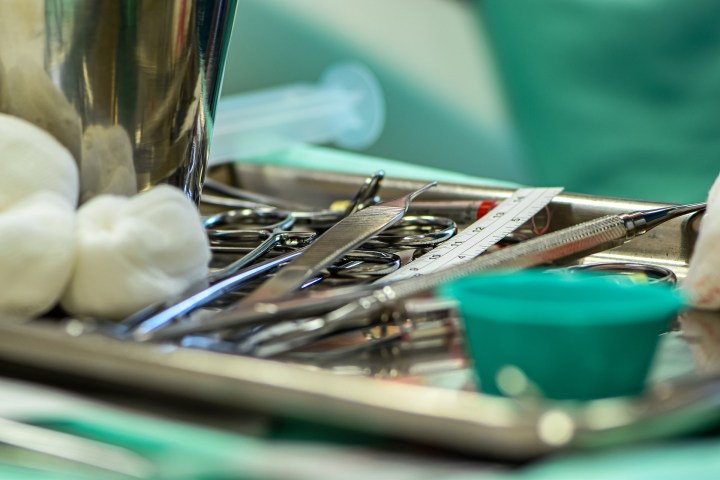ISS TODAY OP-ED
Sinister organ harvesting syndicates prey on desperate Kenya youth for India’s black market

Impoverished young men are selling their kidneys in return for cash to start their own businesses.
The price of a kidney in Kenya? Just under $1,000 plus a motorbike. That is how 30-year-old Joseph Japiny, from Oyugis town in Homa Bay County in western Kenya, got his boda boda — a motorbike taxi he uses to earn a living.
Japiny told the Enact project that he was introduced to Jadhot, a broker recruiting young men into the kidney-harvesting underworld that operates between Eldoret, Busia and Nairobi. Jadhot said that if he donated one kidney, he would be paid $984 as a down payment and another $984 in the form of a Boxer motorcycle. This he could use as a boda boda taxi — a common occupation among young East African men.
Japiny agreed to the deal and was taken to a private clinic in Eldoret for tests. Two weeks later, he was back in Eldoret where he received food and accommodation, and underwent regular blood, urine and faecal tests over the next three weeks. Throughout this time, Japiny had a minder — a person hired to look after those whose kidneys were going to be harvested.
In the fourth week, Japiny was moved to a nearby clinic where his kidney was removed. He stayed there under observation for three days and then spent another three weeks in his hotel. During this time, he had regular check-ups by a doctor from India who did not speak Swahili. He was then given his motorbike and sent on his way.
The media have reported on allegations of illicit kidney harvesting in Kenya since 2019, and Japiny’s story shows that the trade is continuing. The illicit enterprise involves a network of actors who exploit poverty and unemployment among young men in their mid-20s and early 30s to meet the black-market demand outside the country. It also points to significant legal shortcomings in protecting vulnerable young people.
A broker who spoke to Enact on condition of anonymity said he had recruited over 100 young men in Oyugis in the past year. Most were from low-income families, and many had not been educated beyond high school. They wanted capital to start their own businesses.
While many see this as an opportunity to support themselves and their families, they are not necessarily told of the dangers, which include high blood pressure and reduced kidney function that could lead to kidney failure. Some have complained of constant pain at the surgery site, while others say they struggle with long-term back pain.
Quick money amid poverty
The youths are lured by the prospect of cash, with some being paid as much as $5,077 (KES750,000) for a kidney. However, with the increase in young people seeking to donate their kidneys, the price has dropped to around $2,000 (KES300,000). This is despite one kidney on the international illicit market costing on average $85,000.
In western Kenya, youths based in rural areas serve as brokers and recruit vulnerable, healthy young men. These local brokers work closely with agents in cities such as Eldoret, who connect victims of organ trafficking to the clinics where the operations occur.
Clinics and private hospitals in Eldoret are allegedly key nodes in the illicit harvesting and supply of kidneys to recipients in India. At the clinics and rented properties where the surgeries are performed, Indian doctors are brought in to carry out the procedures and post-operative care. Minders play a critical role in escorting victims and organising their travel and accommodation. The clinic owners serve the value chain by supplying the harvested kidneys through the black market in India.
This network of local and international criminal actors goes largely unchecked. The Kenyan Health Act of 2017 provides for the donation of kidneys to relatives or for scientific purposes, within strict guidelines. But the act doesn’t explicitly outlaw the illicit trade in which people agree to sell their organs — a loophole that aids illegal harvesting, storage and transportation of kidneys.
Read more in Daily Maverick: Nigerian senator guilty of trafficking man to UK to provide a kidney
The Health Act imposes a fine of $65,700 or a prison term of up to 10 years, or both, for organ harvesting or trafficking. However, it is impossible to police organ harvesting when there is no existing legal provision for acts involving people willing to sell their kidneys for monetary gain.
While the Kenyatta National Hospital — Kenya’s largest referral hospital — issued a statement in 2022 discouraging youth from selling their kidneys, much more needs to be done by authorities to prevent this trade.
For a start, the legal gaps need to be closed and clear regulations that accommodate this context must be put in place. Active and ongoing oversight of medical facilities and personnel is also required to ensure adherence to ethical practices governing organ removal, transfer and transplant in Kenya. DM
Willis Okumu, Senior Researcher, ENACT, Institute for Security Studies (ISS) Nairobi.
Enact is funded by the European Union and implemented by the Institute for Security Studies in partnership with Iinterpol and the Global Initiative against Transnational Organized Crime.
First published by ISS Today.




















 Become an Insider
Become an Insider
‘Organlegging’ !
The SF writer Larry Niven (Dune) foresaw this trade in the sixties, right after the first transplants, and wrote a story about it . Google the word and his name. Amongst other references, you’ll get the SF Encyclopedia with a lot of info on the story
Sounds terrible but africa is IMPOVERISHED BECAUSE the nazi controlled western hegemony have sucked it dry, sooo had they not come to africa withe the biblunder one arm and an injection needle under the other,africa would still be a “garden of eden” where survival of the fittest would be the order of the day